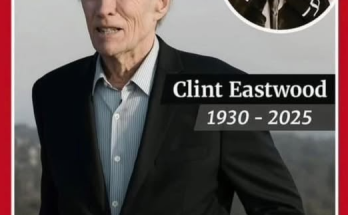Inspiring Viral Video Reminds Viewers of the Value of Honoring and Caring for Seniors
In today’s fast-paced world where technology evolves daily, social media platforms have become both a blessing and a distraction. They connect people across continents, but they also tend to prioritize trends that are fleeting, superficial, or even divisive. Every so often, however, a piece of content cuts through the noise and strikes at something deeply human. Recently, one such video went viral, and its message is simple yet profoundly moving: honor, respect, and care for our seniors.
The Video That Touched Millions
The video, which circulated across TikTok, Instagram, and Facebook, begins with a seemingly ordinary scene. A young man is seen walking past an elderly woman struggling to carry grocery bags. While several others pass her by without so much as a glance, the young man pauses, turns back, and offers his help. What follows is not only an act of kindness but a ripple effect—others join in, helping her to her doorstep, sharing warm words, and even taking time to listen to her stories.
It ends with a simple caption: “Our elders are treasures—don’t forget to honor them.”
Though only a few minutes long, the video resonated worldwide. It was shared millions of times, sparking emotional comments from viewers who were reminded of their own grandparents, parents, and mentors. Many noted that it wasn’t just about carrying groceries—it was about recognizing the humanity and dignity of older generations in a society that often overlooks them.
Why It Struck a Chord
The reason this video struck such a universal chord lies in its relatability. Almost everyone has an elder in their life who has shaped them, loved them, or sacrificed for them. Yet, in the busyness of modern life, it is easy to forget the value they carry.
Many cultures around the world emphasize respect for elders as a core virtue. In Asian societies, for instance, caring for parents in old age is seen as not only a duty but an honor. In many African communities, elders are considered keepers of wisdom and tradition. And in Latin American households, grandparents often serve as central figures in family life.
However, in some parts of the modernized West, there has been a cultural drift. The elderly are often placed in nursing homes or assisted living facilities, sometimes without much contact from family members. While such arrangements are sometimes necessary, critics argue that too often, seniors are forgotten or isolated. The viral video served as a reminder of what we risk losing when we fail to honor and stay connected to our elders.
Seniors as Living Libraries
One of the most striking comments repeated across social media in response to the video was: “When an old person dies, a library burns.” This African proverb emphasizes that seniors carry with them a wealth of stories, knowledge, and life experiences that no textbook or internet article can replicate.
Our grandparents and elders have lived through wars, economic depressions, technological revolutions, and cultural shifts. Their stories offer insights into resilience, patience, and perspective. Listening to them is not just an act of kindness—it is a way of preserving history and ensuring wisdom is passed down to future generations.
By showing an elderly woman receiving help, the video reminded viewers that small acts of kindness can unlock these deeper connections. What may begin as assisting with groceries might evolve into a conversation, and that conversation may reveal a story that inspires and teaches in ways unimaginable.
A Reflection of Our Humanity
How a society treats its most vulnerable—children, the elderly, and those who cannot advocate for themselves—says more about its values than any political slogan or technological achievement. Caring for seniors is not only about respect but about empathy, gratitude, and recognition of shared humanity.
The viral video held up a mirror to its viewers. It asked: Do you pause when you see an elder struggling? Do you take time to call your grandparents or visit your parents? Do you acknowledge the sacrifices they made for you to stand where you are today?
Many viewers admitted the video made them stop and reevaluate. One user wrote, “I haven’t called my grandmother in weeks. This video is the reminder I needed.” Another shared, “My grandfather raised me. Watching this broke me because I realized I take his presence for granted.”
The Power of Social Media for Good
While critics often accuse social media of encouraging vanity and shallow content, the viral spread of this video shows its potential for good. When harnessed positively, these platforms can spread reminders of empathy, compassion, and humanity to millions within hours.
Hashtags related to the video soon trended: #HonorOurElders, #RespectSeniors, and #GrandparentsMatter. Influencers, community leaders, and even organizations dedicated to senior care used the momentum to highlight ongoing issues such as loneliness in the elderly, inadequate healthcare access, and the importance of family involvement.
In many ways, the video became less about the original act of kindness and more about sparking a global conversation: how do we treat those who once cared for us?
Lessons for Younger Generations
The younger generations, particularly Gen Z and Millennials, were among the most active in sharing and discussing the video. Many reflected on their own relationships with grandparents or admitted regret over not spending more time with them.
For young people navigating the hustle of education, careers, and social lives, caring for seniors may not always feel urgent. Yet, the video’s emotional punch highlighted that time with loved ones is limited and precious. The takeaway was clear: while we are busy chasing our future, we must not forget to honor the past that gave us our foundation.
From Viral Moment to Real Change
The ultimate question, however, is whether such viral moments translate into lasting behavioral change. Viewers were quick to share the clip and express emotions online, but true impact lies in what happens offline.
Charities and senior advocacy groups have since reported increased interest in volunteering, donations, and community support. Some families began organizing weekly dinners with grandparents, while others committed to regular phone calls or visits. A few schools even shared the video as part of life-skills lessons, using it to teach respect and empathy.
This ripple effect proves that one act of kindness, amplified by social media, can go beyond virtual tears and clicks to foster genuine human connection.
Conclusion: A Call to Action
The inspiring viral video of a young man helping an elderly woman was more than just heartwarming content—it was a cultural wake-up call. It reminded millions worldwide that seniors are not burdens but treasures, carrying wisdom, love, and history that deserve recognition and respect.
Honoring and caring for elders is not only about repaying debts of gratitude but about preserving the fabric of humanity. The video’s enduring lesson is simple: small acts of kindness ripple outward, shaping families, communities, and societies for the better.
In a time when life moves quickly and distractions are endless, perhaps the most radical act we can commit is slowing down, looking back, and saying: “Thank you. We honor you. We’re here for you.”


